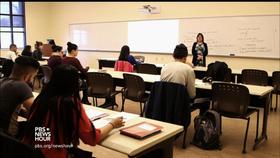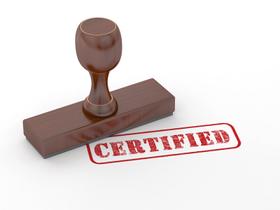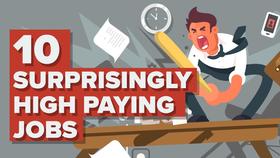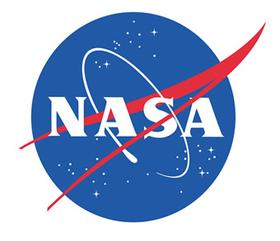College is expensive, but at least one community college is looking for a way to help students cut the cost of a college education. Tidewater Community College in Virginia has announced plans to debut a textbook-free degree program next year. College officials estimate the pilot program could cut the cost of the degree by as much as a third by the time graduation rolls around.
Learning Business without Textbooks
The Richmond-Times Dispatch reports that Tidewater Community College will be offering an associate of science degree in business administration this fall that will require no textbook purchases throughout the program. Instead, students will use open-source educational materials, known as OER, which they will be able to access through the school’s learning management system on smartphones or tablets. The college will be the first to offer a complete degree program without any textbooks required.
The program was developed as a partnership between Tidewater Community College and Lumen Learning; an Oregon-based company that helps schools across the country incorporate OERs into their learning plans. The founder of Lumen, David Wiley, has advocated for open education for the past 15 years, according to The Chronicle of Higher Education. However, no school has been open to the concept of a completely textbook-free degree program until now.
“It’s frustrating to watch these resources keep getting created, and then watch nobody use them and the students get no benefit,” Wiley stated at The Chronicle of Higher Education.
This video offers an overview of Tidewater Community College's text-free degree program.
The Textbook Zero Model
The company developed the first textbook-free degree program in business administration and has since been looking for colleges to collaborate with them on the concept. Tidewater is the first school to embrace the Textbook Zero model, as Lumen has dubbed the program. The company is also looking for schools interested in applying the same model to degree programs in general studies and computer science.
But first, Tidewater will have to show that the Textbook Zero model is effective, both from an academic and a financial standpoint. Virginia Business reports that the school will debut the program in the fall, providing students full access to all the materials needed to complete the courses with just a browser.
“If we’re successful, we will see increased access and affordability for students; faculty engaged in learning about and refining the use of OER; and greater faculty and student understanding of learning outcomes,” Daniel T. DeMarte, vice president for academic affairs and chief academic officer for Tidewater, told Virginia Business.
This video from College 101 U discusses eBooks and printed textbooks.
The Cost of Textbooks Today
According to a report at U.S. News and World Report, the average community college student spends approximately $1,000 a year on textbooks and supplies. The cost of textbooks is rising at more than four times the rate of inflation. The U.S. Bureau of Labor Statistics estimates that the cost of textbooks has risen by more than 800 percent since 1978, with the average textbook costing around $175 today. In some instances, the cost of a textbook could exceed the tuition cost for the entire course.
A U.S. Public Interest Research Group survey found that seven out of every 10 college students have skipped purchasing a required textbook for a class in recent years, due to the high price tag. Going without a textbook can present a decided obstacle to a student’s success in a course. In some cases, the lack of money to purchase textbooks could directly impact college completion rates.
Some companies have looked to online textbooks as a means of saving money on the cost of these resources. U.S. Education Secretary Arne Duncan touted this option at U.S. News as a cost-saving approach that would easily allow publishers to edit and update online textbooks, even after they have been distributed for use. However, e-textbooks have proven nearly as costly as their traditional counterparts, according to a Daytona State study reported at U.S. News. In fact, some community college students saved as little as one dollar a semester by switching to digital options.
More about OERs
Open education resources are those found in the public domain or have special licensing that allows them to be used by others for free. While the focus in this program is text, the material can also be provided through video, newspaper articles, and other resources. Wiley explains that many of these materials are made available to the general public through grants from the Bill & Melinda Gates Foundation, William & Flora Hewett Foundation, and other non-profit organizations. Those organizations may also provide a sort of vetting process to ensure the material in the public domain is of high educational quality.
Currently, other institutions are beginning to experiment with the use of OERs in the classroom. Washington has even developed a statewide OER library for technical schools and community colleges to use. The Open Course Library does charge a fee for students to access materials, but the fee is considerably less than the cost of textbooks with similar information.
Cable Green discusses open education resources in this video.
Despite the gradual experimentation with OERs, Tidewater Community College will be the first to offer a full textbook-free degree program. The two-year pilot program is sure to be closely watched by other institutions that will be weighing both the cost savings potential and the academic quality of the material used. If the program proves successful at Tidewater, it is very possible other community colleges will soon join the ranks of schools offering Textbook Zero programs that save their students a considerable amount in the cost of higher education.
Questions? Contact us on Facebook. @communitycollegereview






















































































